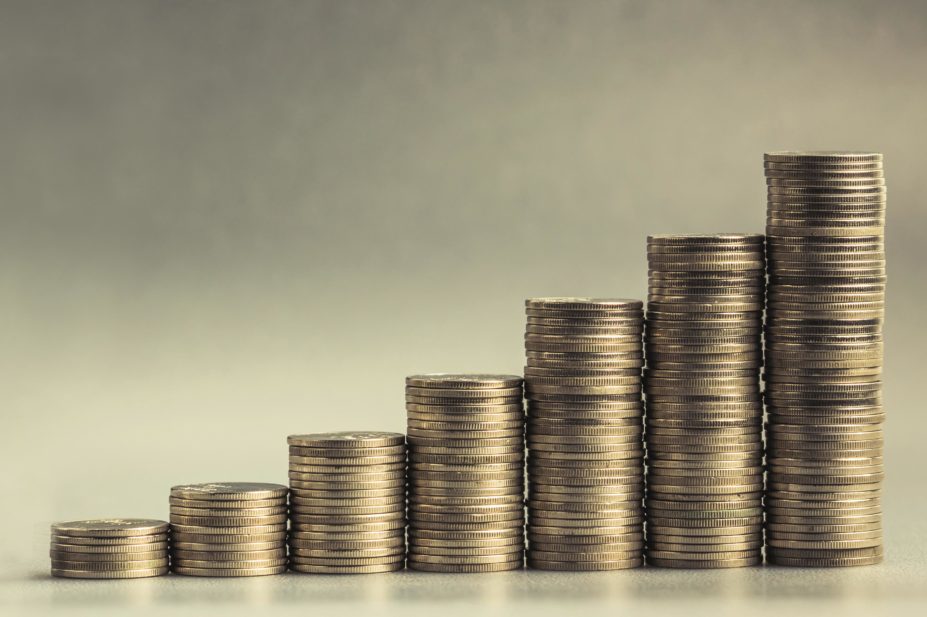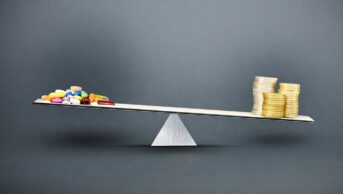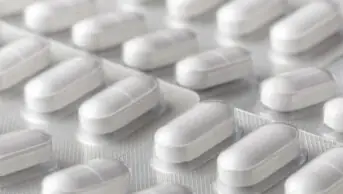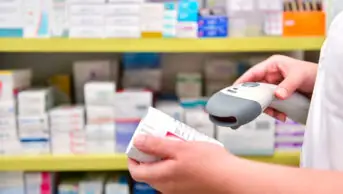
Shutterstock.com
Drug tariff prices for some generic medicines have soared by up to 1,700% over the past two years, increasing the health service’s drug bill by an estimated £76m, despite the government promising a crackdown on pricing in this sector.
An investigation by The Pharmaceutical Journal reveals that drug tariff prices for 33 generic “Category A” medicines were found to have more than doubled between July 2018 and October 2020.
In the case of one Category A generic medicine, the commonly used antipsychotic risperidone, the drug tariff price for the 6mg dose has increased by 1,736% since 2018.
Two of the three products that have seen the highest increases were manufactured by the generics arm of a manufacturer now under investigation by the Competition and Markets Authority (CMA) for “suspected anti-competitive practices”.
The products hydrocortisone 0.5% ointment and phosphates enema (Formula B) 128mL standard tube — manufactured solely by Essential Generics — increased in price by 671% and 602%, respectively.
Category A medicines are those that are commonly available from large wholesalers, but are not subject to the price restrictions under Category M. In July 2018, the government enacted three pieces of legislation that would allow them to gather information on Category A generic medicine prices, implement pricing caps, and fine suppliers for exceeding those caps.
However, the second annual review of that legislation, published on 8 October 2020, revealed that the Department of Health and Social Care (DHSC) had yet to use any of these powers and is “continuing to develop proposals to address high-priced generics”.
Drug tariff prices are calculated using a weighted formula based on the wholesaler and manufacturer list prices. The analysis by The Pharmaceutical Journal — of these prices and monthly prescribing data published by NHS Business Services Authority — estimates that, if the cost of Category A medicines prescribed each month in primary care alone had been capped at July 2018 prices, the NHS would have saved £76m in the two years since July 2018.
Pharmacy leaders said the unpredictable nature of the generics market in the UK was a major problem, and called for the government to use its powers to control drug prices.
A spokesperson for the National Pharmacy Association said the DHSC “needs to fully utilise their powers in order to improve the stability of the generic medicines market”. They added: “At a time of a national health crisis and deep cuts in remuneration, pharmacies could do without these uncontrolled and unpredictable purchase costs.”
Ciara Ni Dhubhlaing, president of the College of Mental Health Pharmacy, said the “huge increase” in the price of risperidone could become a real problem for patients with mental health problems on that particular dose: “There are other strengths available, which may be more economical, but it is usually best to keep the tablet burden as low as possible for patients and to avoid mixing strengths in case of confusion.”
She added: “Any price increase is a particular concern in these times when health services are under immense financial pressure to fund treatments and, hopefully, vaccines for COVID-19.”
However, Warwick Smith, director general of the British Generic Manufacturers Association, defended manufacturers’ “entirely legitimate reasons” for increasing prices. “Even at potentially inflated reimbursement prices, generic competition overall saves the NHS £12bn per year,” he said, referring to the difference in costs to branded drugs.
While the cost of some products increases, “others frequently go down, so, a focus on just those products whose reimbursement price goes up gives a false sense of the overall operation of the market,” he added.
Commenting on the analysis, a spokesperson for the DHSC said it has “seen an increase in price for products that have no competition, and we have referred a number of these to the CMA”.
The CMA is currently conducting investigations into the pricing of four Category A drugs: hydrocortisone, nitrofurantoin, phenytoin and lithium carbonate. However, aside from the investigation into lithium-based drugs, all of the price increases under investigation occurred prior to 2018.
Jack Cresswell, funding strategy manager at the Pharmaceutical Services Negotiating Committee (PSNC), said the “PSNC is keen to ensure that pharmacy contractors are not required to cover the shortfall in any increased costs for the supply of NHS prescriptions”.
The Pharmaceutical Journal has approached Essential Generics for comment, in addition to the four manufacturers of risperidone 6mg tablets: Almus Pharmaceuticals, Aurobindo Pharma Ltd, Dexcel Pharma Ltd and Relonchem Ltd. Wholesalers Alliance Healthcare Distribution Ltd and AAH have also been approached for comment.
How did we calculate the figures?
In order to find that the drug tariff price increases cost the NHS an additional £76m in two years, The Pharmaceutical Journal calculated the price-per-unit for all Category A medicines dispensed in each month from pharmacies and dispensing doctors between July 2018 and October 2020, using the monthly drug tariff and the monthly Prescription Cost Analysis (PCA) dataset from NHS Business Services Authority (BSA). The price-per-unit is found by dividing the drug tariff price by the number of units in each pack; for example, tablets or millilitres.
An additional price-per-unit was calculated using the July 2018 tariff price for the same set of dispensed drugs in each month. Each of these prices-per-unit was multiplied by the quantity of the products dispensed by both community pharmacists and dispensing doctors in each of the intervening months. The quantity dispensed is defined by NHS BSA as the number of units dispensed.
This provided two costs of prescribing a specific form and strength of a product: the cost of dispensing the number of units prescribed each month at the actual drug tariff price for that month, and the cost of dispensing the number of units prescribed each month at July 2018 tariff prices.
Both these costs were totalled and the difference between them amounted to what the NHS could have saved that month, had tariff prices been capped at July 2018 levels.
This calculation was repeated for each intervening month, with monthly differences totalled to equal £76m.
Note: The PCA dataset combines pack sizes when listing drug quantities dispensed, while the drug tariff lists out the cost of different pack sizes. As price-per-unit remained consistent between pack sizes in the drug tariff, the potential for double counting dispensed quantities was removed by only using one price-per-unit for the specific dosage and form where multiple pack sizes are available.


